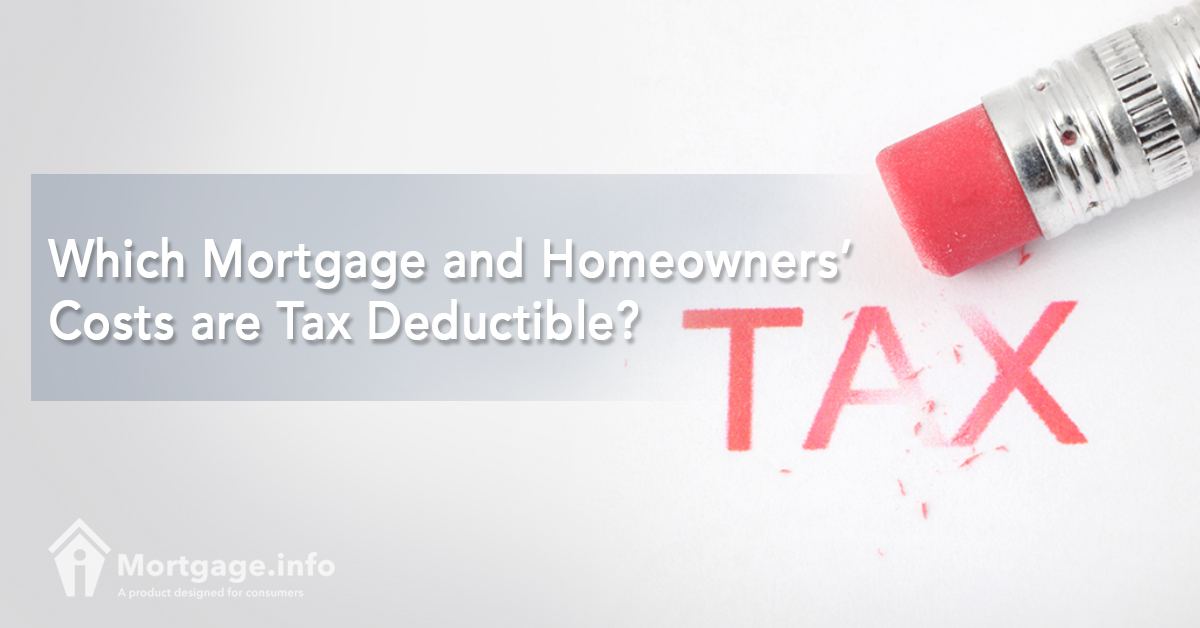
It is no secret that owning a home is expensive! The good news is that there are many breaks you get as a homeowner on your tax returns. Understanding what you can write-off can help you make many decisions, including if you want to pay discount points; what changes you want to make to your home; and whether or not you want to refinance. Each of these circumstances can play a role in your ability to have tax deductible expenses.
Mortgage Interest
Perhaps the largest tax deductive option you have is the mortgage interest you pay. The good news is that you can deduct all of your mortgage interest unless your loan is more than $1 million, which is pretty rare. The interest you pay on your mortgage can be your first mortgage or your tenth mortgage refinance because interest is interest and it’s deductible. To make matters even better, you can also deduct mortgage interest you pay on second homes and investment properties.
Discount Points
Many homeowners pay discount points to obtain a lower interest rate. This is a great option for those that plan to stay in their home as the savings can be great in the long run. You can deduct discount points on almost any type of loan, but how much you get to deduct does differ for this expense.
- Purchased home – If the points you pay are for your primary home and it was a purchase, you get to deduct the entire expense in the year you paid it. There are a few other stipulations, such as the amount of points you paid must be the norm for the area and the home must be your main home, not a secondary home.
- Refinanced loan – If the points you pay are on a refinance, you can still deduct the points, but over a gradual period. Typically, you must spread the points out over the life of the loan. For example, if you refinanced into a 30-year loan, you would deduct 1/30th of the points you paid every year until the loan is paid off.
- Home equity loan – Points on a home equity loan are tax deductible as well. They follow similar rules to the first mortgage discount points. If the funds from the loan helped to fix up your home, the entire amount of the points are tax deductive in the year you paid them.
- Debt consolidation loan – If the loan you took out and paid points on was for any type of debt consolidation or any other financing (purchase a car, etc.), you have to spread the deduction out over the life of the loan as you would with a refinanced loan.
Real Estate Taxes are Tax Deductible
You might hate paying real estate taxes, but come tax preparation time, you will not feel so bad. The amount of taxes you pay each year gets itemized on Schedule A and deducted. The amount of taxes you deduct can be found on your tax bill or your mortgage escrow statement from your lender. This amount will differ during the year you purchased the home, however. Make sure to check your Settlement Statement from the purchase of your home when you prepare your taxes as you probably paid a portion of the taxes ahead of time as the settlement agent splits the taxes between you and the seller based on the date you purchased the home. For example, if you purchased the home in September, the seller is responsible for the taxes up until September, while you are responsible for the taxes from September to December. You can write off this amount on your taxes the following April.
Energy Efficiency Costs
As of right now, you can take advantage of any energy efficient changes you make to the home. This includes major changes, such as changing out doors or windows as well as any renewable energy sources you install, such as solar equipment. You might be eligible to deduct a percentage of the costs of the equipment you install depending on what you installed and how it helps the environment.
Moving Costs
If you sell your home, you can deduct the amount of the expenses you paid for selling. This includes fees, such as commissions paid to brokers; title fees; advertising fees; legal and inspection fees. You can include anything that directly impacts your ability to sell the home. This money comes directly off of the capital gains you make from the profit of selling your home and can help to lower your tax liability.
Using your Home as an Office
If a part of your home doubles as your office, you can deduct a part of the expenses that pertain strictly to your business. You have to have a room that you use strictly for business purposes in order to qualify. If you qualify, you can deduct a percentage of the fees to keep up the house, including maintenance, insurance, and depreciation.
You should discuss any costs you think are tax deductible with your accountant or tax preparer. Every situation differs based on the circumstances surrounding the costs. The good news is that owning a home can help to save you money in the long run, helping to make your mortgage payments more affordable in the end.
